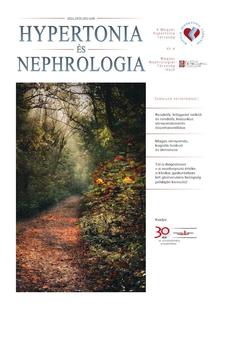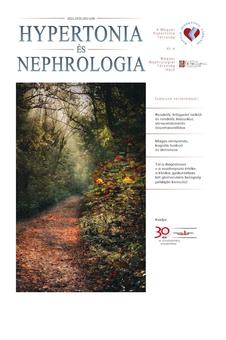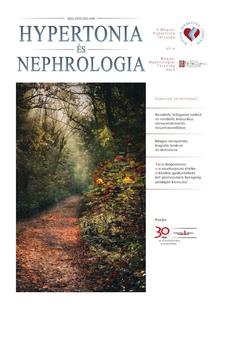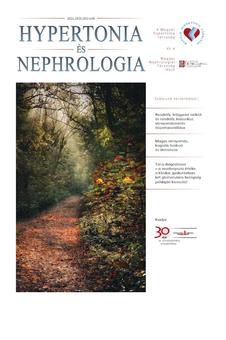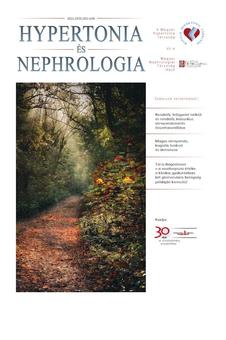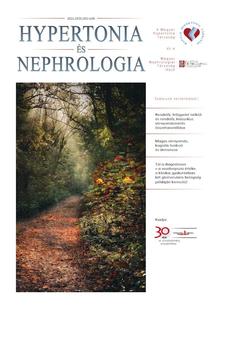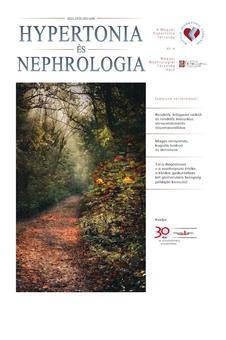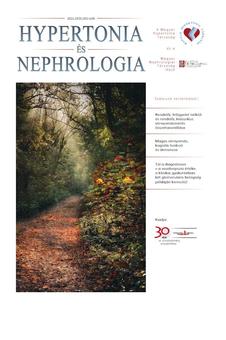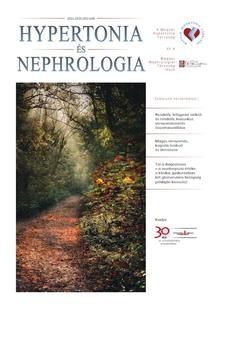The eLitMed.hu medical portal uses computer cookies for convenient operation. Detailed information can be found in the Cookie-policy.
Hypertension and nephrology - 2021;25(05)
Content
[Unattended automated office blood pressure measurement versus classic office automated blood pressure measurement in a hypertension outpatient clinic]
[Accurate measurement of blood pressure is a fundamental prerequisite requirement for an appropriate management of arterial hypertension. In order to eliminate the well-known limitations of classic office blood pressure measurements, the so-called unattended automatic office blood pressure measurement method can be a solution. In 52 patients arriving for regular followup into one of the Hypertension Outpatinet Clinic of the Nephrology-Hypertension Center of the University of Szeged 3-3 blood pressure measurements were made at 1-1 minute intervals first by a doctor with an MIT5 automatic device and then in a separate room unattended, starting alone by the patient with a Hem-907 device. ]
[Hypertension, cognitive function and dementia – Significance of antihypertensive therapy]
[The significance of hypertension as one of the major cardiovascular risk factor is unquestionable. By achieving target blood pressure values differentiated by age and comorbidities, the risk of cardiovascular events can be significantly reduced. However, it is essential to the quality of life the patient spends the extra years of life thus gained. This is a really complex issue affecting many co-disciplines, but one of the most important of these is the mental health, maintaining cognitive functions, and avoiding dementia. High blood pressure impairs the blood supply to the target organs, including the brain, by damaging the smooth muscle of the arteries and accelerating atherosclerosis, which increases the risk, the frequency and the severity of mental decline in proportion to the degree of tension. This means serious implications not only for the individual, but for the family and the society, as well. A particular contradiction is that treating blood pressure to the target range does not automatically means preserving cognitive functions and avoiding the risk of dementia. Meta-analyzes of large studies have shown differences between the individual antihypertensive groups have been confirmed in this respect as well. Inhibitors of the renin-angiotensin system and calcium antagonists – mainly dihydropyridines – appear to be a priority in this regard. The authors provide an overview of the relationship between hypertension and mental abilities, with a review of the literature on the effects of antihypertensive therapy, with particular reference to the effects on cognitive function and dementia. ]
[Beyond the diagnosis – the value of renal biopsy in clinical practice through the example of two glomerular diseases]
[In this review, the publications that established the value of renal biopsy in nephrology are referenced, the pathomechanism of lupus nephritis (LN) and IgA glomerulonephritis (IgAGN) is briefly summarized, and a detailed account is given on the previous and currently accepted classification systems of LN and IgAGN and on the prognostic relevance of these systems. ]
[Subtype diagnosis, treatment, complications and outcomes of primary aldosteronism and future direction of research: a position statement and consensus of the Working Group on Endocrine Hypertension of the European Society of Hypertension – excerpts]
[Primary aldosteronism is a frequent cause of secondary hypertension requiring a specific pharmacological treatment with mineralocorticoid receptor antagonist or with unilateral adrenalectomy. These treatments have shown to reduce the excess of cardiovascular risk characteristically associated with this disease. In this consensus, we discussed the procedures for the diagnosis of primary aldosteronism, we address the strategies for the differential diagnosis of primary aldosteronism subtypes and therapy. We also discuss the evaluation of outcomes and provide suggestions for follow-up as well as cardiovascular and metabolic complications specifically associated with primary aldosteronism. ]
[Effect of beta-blockers with or without vasodilating properties on central blood pressure]
[Beta-blockers are more and more excluded as frist-line option in recent hypertension guidelines – they are mainly used in the case of compelling indication. However beta-blockers are not a homogeneous drug-class as several differences exist between them regarding their effect on metabolism or vasoconstriction/vasodilation. The clinical implication of central blood pressure has recently arisen into the focus of interest in the light of the fact that different antihypertensives exert different effect on central blood pressure. The theory of ”stiffness-gradient” may help us to deepen our knowledge regarding the physiology of central blood pressure. Several studies investigated the effects of different beta-blockers on central blood pressure. Based on the unique effect of beta-blockers with vasodilating properties it can be emerged to form this group of drugs as a new antihypertensive class. ]
1.
Clinical Neuroscience
Is there any difference in mortality rates of atrial fibrillation detected before or after ischemic stroke?2.
Clinical Neuroscience
Factors influencing the level of stigma in Parkinson’s disease in western Turkey3.
Clinical Neuroscience
Neuropathic pain and mood disorders in earthquake survivors with peripheral nerve injuries4.
Journal of Nursing Theory and Practice
[Correlations of Sarcopenia, Frailty, Falls and Social Isolation – A Literature Review in the Light of Swedish Statistics]5.
Clinical Neuroscience
[Comparison of pain intensity measurements among patients with low-back pain]1.
Clinical Neuroscience Proceedings
[A Magyar Stroke Társaság XVIII. Kongresszusa és a Magyar Neuroszonológiai Társaság XV. Konferenciája. Absztraktfüzet]2.
3.
Journal of Nursing Theory and Practice
[A selection of the entries submitted to the literary contest "Honorable mission: the joys and challenges of our profession" ]4.
Journal of Nursing Theory and Practice
[End of Life and Palliative Care of Newborns in the Nursing Context]5.
Journal of Nursing Theory and Practice
[Aspects of Occupational Health Nursing for Incurable Patients ]